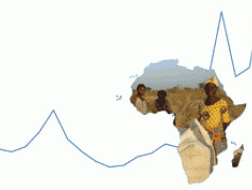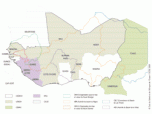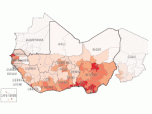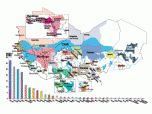Topics
Food Price Volatility
Agricultural and food price volatility is a common challenge for all members of the international community. While African governments have developed their own policy responses (in particular the setting-up of a Regional Food Reserve), Africa’s voice also needs to be heard more strongly and be more systematically represented in global debates and fora such as the G20. This thematic dossier provides key information on the current stakes and about ongoing initiatives in reponse to these challenges.
MoreRegional Organisations
West Africa is the most advanced African region in terms of regional co-operation, though much remains to be done. Existing measures for further integration include: laws in support of the free movement of people and goods, a common external tariff, regional food crisis prevention and management, a common agricultural policy, mining policy, intraregional electricity exchange, regional gas pipelines, a joint position on migration, regional conflict prevention, cross-border co-operation, etc. Joint action is not only an efficient way to tackle development challenges, but it also helps the region to better call attention to its interests at the international level.
MoreDemographic trends
In 2010, some 318 million people lived in West Africa. The regional population is expected to exceed 400 million by 2020 and 500 million between 2030 and 2035. By 2050, West Africa is predicted to host more people than Northern America (450 million) and almost as many people as Latin America (700 million) or Europe (720 million). Nigeria alone is home to 50% of the West African population; it is the largest demographic power in Africa and the eighth in the world.
MoreLanguages
West African languages are one of the communities’ pillars. Of the 2 000 living languages registered in Africa, 1 200 are spoken in West Africa. Hausa, mandingo, peul and yoruba are the main regional languages that are spoken beyond national borders.
More




